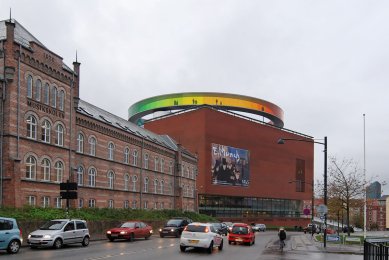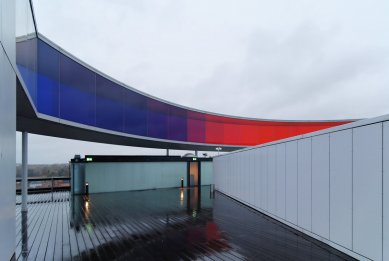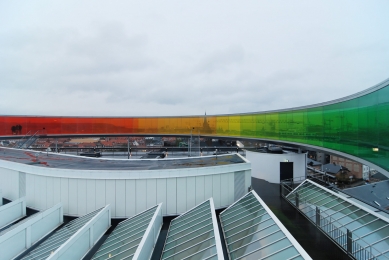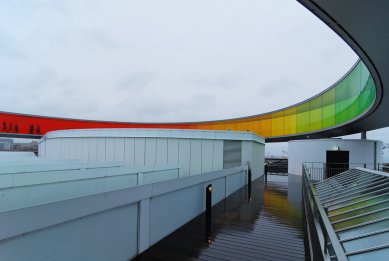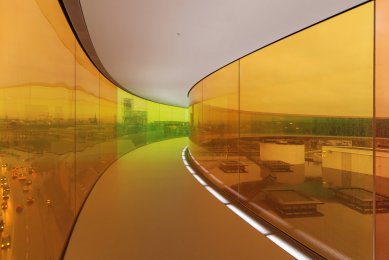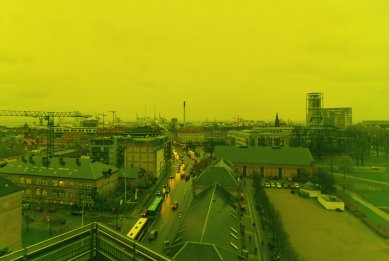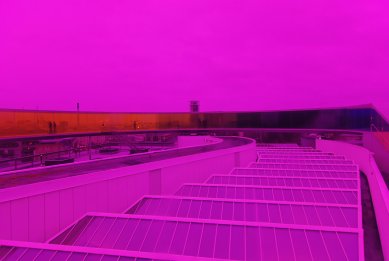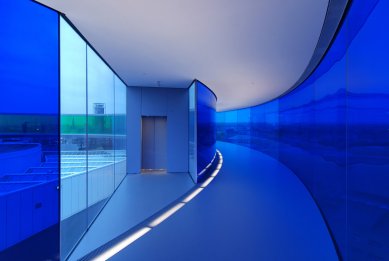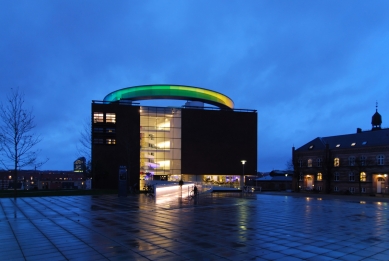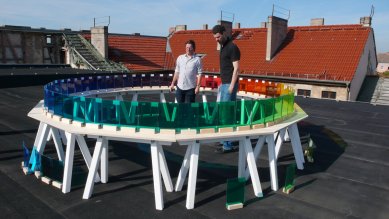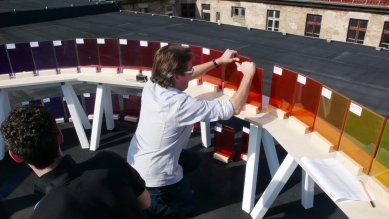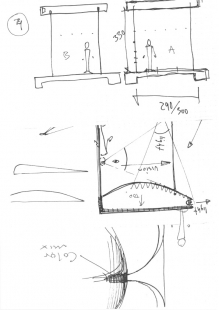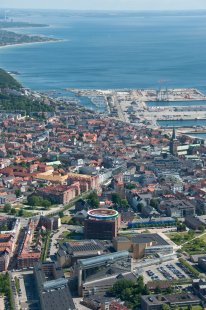
Your rainbow panorama

 |
I think of Your rainbow panorama as a mediator that forges relations between these three: you, ARoS, and the city of Aarhus. It is a vehicle for looking anew, which frames views and frames you as you proceed through the seamless walkway of subtly transforming colour atmospheres. What you experience may be of both panoramic scope and introspective quality – you may see yourself seeing. Sometimes alone, mostly with others.
I see Your rainbow panorama as an orientation tool. Dividing Aarhus into colour zones, it has the qualities of a lighthouse: it draws attention not only to itself, but also to your physical location in Aarhus. For people living in the city and moving through the different times of day, the work becomes a compass in time and space.
Imagine Your rainbow panorama as an instrument that tunes you – its user – so that your body is transformed into a colour resonator. Enveloped in the rainbow environment, you produce afterimages in hues complementary to the colours in the glass panes around you. If you look at the city through red glass, your eyes develop a green afterimage. If you maintain a quick pace, the colours remain vibrant. But if you pause in one colour zone, the hue around you grows pale while the colours in your peripheral vision, where the walkway curves, intensify. Colour intensities depend on your speed.
The colour spectrum speaks to the museum collections below – to contemporary art as well as to the works of, say, Karl Isakson, Olaf Rude, or Oluf Høst. These modernist painters were equally infatuated with what colours say and do.
The circle of Your rainbow panorama complements the museum’s square plan exactly. These basic geometric forms challenge each other in a friendly dialogue about spatial dimensions, movement, and the passing of time. The continuous curve limits your view to about twenty meters ahead, revealing one colour shade after the other. The intimacy created by this short distance is reflected back on the moving bodies.
Think of Your rainbow panorama as an expectation machine. Even before entering ARoS and ascending to the work, you may look upon the city as if through coloured glass. Your expected gaze. What you know from the street then emerges from above as strangely real, in a continuous interplay of colour saturation and desaturation. Suspended between the city and the sky, this viewing platform insists on your sensory engagement. You feel the view. Perhaps your memory of the art collections below, through which you just made your way, infiltrates your experience.
Your rainbow panorama sits on top of a house of condensed meanings – contested, defended, undone, and re-enacted – of cultural intentions, historical realities, visions, and revisions. Museums will always be vision machines. Visions for now and forever.
0 comments
add comment


